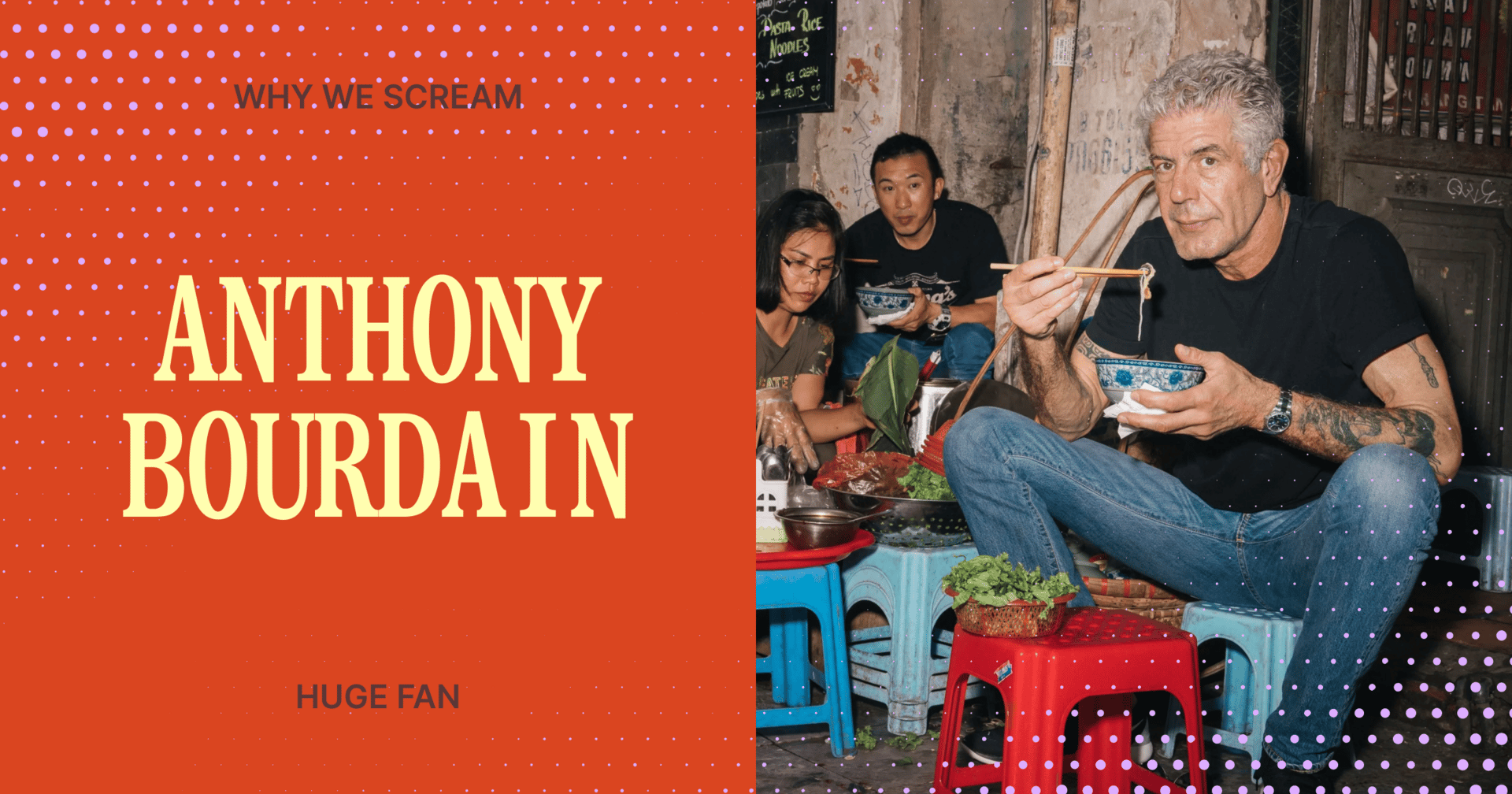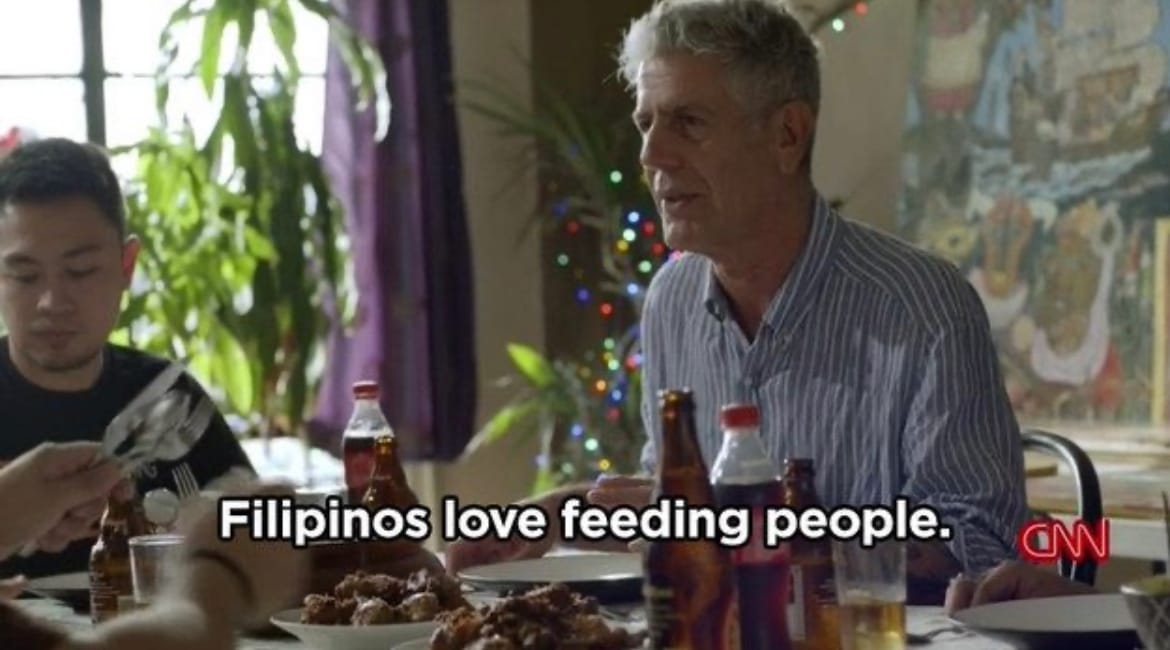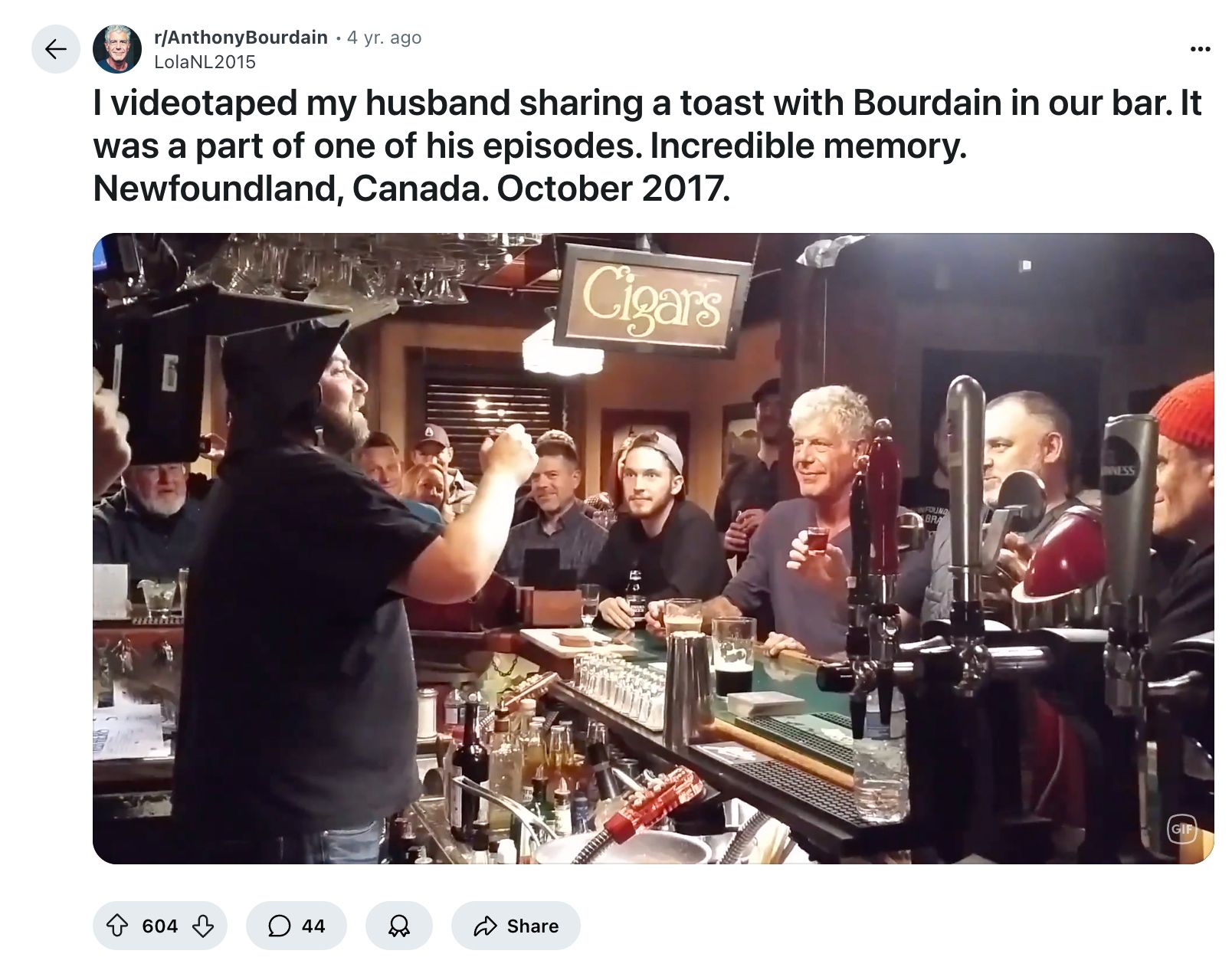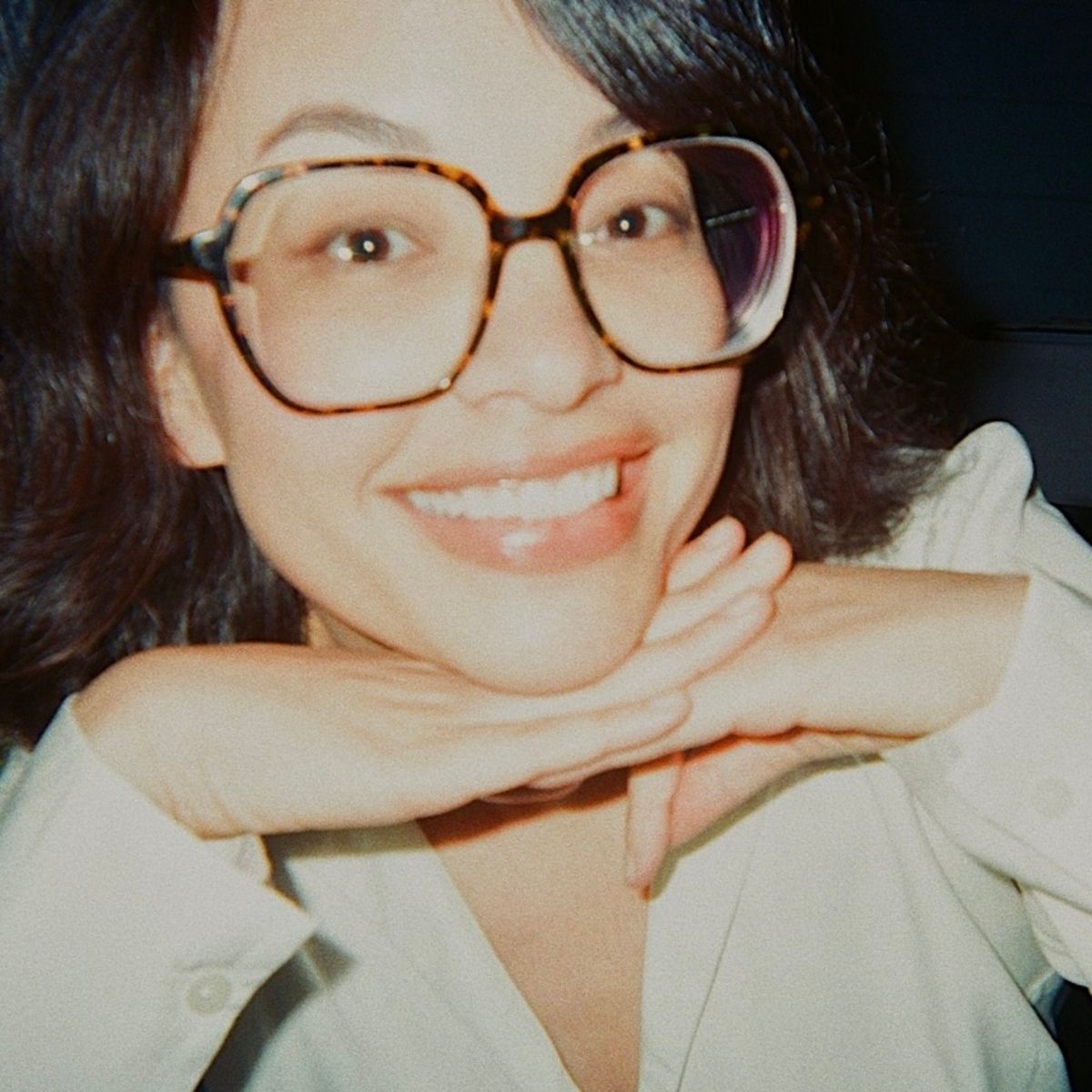Welcome to the Friday edition of Huge Fan called Why We Scream!
Fridays are for the heart. Stories from the fans. Why they stay, who they've met, and the love that keeps pulling them back. Tuesday’s posts focus on how fandom fuels business and the people turning passion into something bigger.

I remember the morning I woke up and learned that Anthony Bourdain had died. I remember the house I lived in, I remember it being sunny, and I remember crying. It’s hard to put into words why I cried over someone I had never met. It wasn’t until this interview that I realized why: Anthony Bourdain taught me to trust other people and to be curious. And even until this day, he reminds me that human connection is…the whole point.
I remember watching the 2015 episode of Parts Unknown where he traveled to Beirut. I was sitting with someone who had never shown interest in traveling outside of the United States and they said, “I want to visit.” Anthony Bourdain, within 60 minutes, changed someone’s whole perspective. Right in front of me.

A photo I have saved on my phone. It’s something I know to be true of myself and my family and loved that he recognized it, too.
So today I’m pulling back the curtain on his fandom, what it means to moderate his subreddit, and how that care and attention is a gift to his fans. With over 87,000 members, it’s one of the top 2% on Reddit. Their rules include:
No advertising/spam
No content unrelated to Anthony Bourdain
No celebrity gossip/speculation
Be civil
No low effort posts
I spoke with Joseph, a mod on /r/AnthonyBourdain about how he became a fan, what it takes to steward a fandom space this large, and why invisible care work might be the most underrated part of community building.
The early days
Joseph’s Bourdain story started in Atlanta when Parts Unknown first aired. “The ads were everywhere, but I wasn’t especially interested. Then I happened to catch the first episode, the one set in Myanmar, and his way of telling a story pulled me in immediately. I watched the entire episode without moving.”
By the time the Charleston episode aired, Joseph was already a fan but this one made it personal. “He did not just recommend restaurants. He told the story of where the food came from and why it mattered. He visited Gullah Geechee communities and explored the African origins of so much of the region’s cooking. He acknowledged the brutal legacy of slavery, the long shadow of plantations, and the ways industrialization reshaped the culture and erased parts of the story that still deserve to be told. He gave a spotlight and a microphone to the people working to restore and rebuild those erased parts of Southern food and culture, doing so in a way that honors the past while trying to create a more honest and just version of it for the future. That kind of nuanced perspective in a food and travel program is rare, especially when it comes to Southern food, which is so often flattened into a set of pop culture clichés.”
Seeing that presented with such care shifted something in him. “I canceled a planned Florida vacation and went to Charleston instead. That trip changed my trajectory. I moved there the following year.”
Belonging feels like a shared table
Not every moderator has to be a huge fan. But for a space like /r/AnthonyBourdain, Joseph says caring about the conversations is essential. “People come for all kinds of reasons — to swap travel stories, talk food, dig into the geopolitical context of episodes, or share how his work shaped their life. The value of the subreddit comes from that diversity of perspectives.”
The goal is to create conditions where a post about making noodles in Hanoi, a thoughtful essay on grief, and a debate on the ethics of tourism can all exist in the same space. “A good moderator understands that all those stories belong in the same room.”
Stewardship you don’t always see
When Joseph joined, the subreddit had been unmoderated for years after Bourdain’s death. “The space filled up with spam, self-promotion, and posts that had little connection to his work. There was almost no meaningful conversation.”
He joined forces with author Valerie Stimac (who runs Eat Like Bourdain) and two others to clear it out, set boundaries, and restore the culture. Today, his role is part host, part referee, part janitor. “We welcome people in, step in when rules are broken, and clean up anything that drags the place down. If it’s tidy and welcoming, it usually means someone is putting in steady, unseen work.”
Moderation, Joseph explains, isn’t about strict rule enforcement for its own sake. “Sometimes the right call is to remove something immediately, sometimes it’s to step in and redirect, and sometimes it’s to let a conversation run even if it’s a little messy. The goal is protecting the space so people who value it have a reason to keep showing up.”
Posts that resonate
The content that rises to the top almost always carries meaning, emotion, and care:
Personal tributes and candid moments from his shows. (Trigger warning: suicide and self-harm in this post by a former crew member who remained anonymous.)
Discovery posts that surface obscure interviews or overlooked scenes. (Fan photo of Anthony Bourdain sleeping during filming.)
Collective memory threads where fans piece together details about a specific scene or trip.

View post here
Joseph points out, “The posts people connect with are rarely just about information. They’re about the feelings and memories attached to Bourdain’s work.”
Bridging generations of fans
Some subreddit members have been following Bourdain since A Cook’s Tour or No Reservations. They know the early books, the backstory, and the moments that shaped his voice. Others discovered No Reservations or Parts Unknown on streaming years later. Many first encountered him after his passing, finding a clip, a book, or a story and then tracing it back to the full body of his work. “In the long run, I think it is inevitable that this will be the largest group of fans, which makes it feel all the more important to be a good steward of this space,” Joseph said.
A few go back even further. One member knew him before the New Yorker essay Don’t Eat Before Reading This that led to Kitchen Confidential. Another has an advance reader copy from before it was published. Some ate at Les Halles when he still thought Kitchen Confidential might be his only big break.
“The fresh perspectives from newer fans give those of us who have been around for a long time the chance to revisit older work through the context we live in today,” Joseph shared.
Grief and celebration, side by side
Anniversaries of his passing, his birthday, and other milestones fill the subreddit with photos, quotes, clips, and personal stories. Joseph explained, “Some members mark the day by revisiting a favorite episode, cooking a dish he made, or traveling to a place they first learned about through him.”
“The sadness still lingers, but so does the desire to keep alive the things he championed: curiosity, openness, and the belief that people and places are worth knowing on their own terms. Every so often, someone with a bad attitude will point out that he was just a famous person most of us never met, as if that should invalidate our enthusiasm and the connections and conversations that happen in our community. There is nothing original or insightful in their observation; it is how art has always worked. People connect to a voice, an idea, an approach, or a way of living, whether they meet the person behind it or not. This community is not built on the idea that we all knew him. It is built on the reality that he had an impact on us, and that impact is worth talking about.”
When fandom becomes an archive
Two contributions show how the subreddit preserves Bourdain’s legacy. Joseph shared:
The first is a set of maps created by community member u/deannd as part of a GIS major. They chart every location Bourdain visited across A Cook’s Tour, No Reservations, The Layover, and Parts Unknown, organized by show, season, and type of place. Many spots no longer exist, so the maps serve as both a travel guide and a historical record. Fans use them to plan trips, find places from episodes, or build new projects with the data.
The second is a thread titled “Why are the fans of Tony Bourdain so emotionally attached to him?” Hundreds of comments poured in, each a personal story about how he changed someone’s perspective, inspired a trip, or made them feel seen. Joseph said reading it felt like “sitting around a table with people from everywhere, swapping stories about a mutual friend.”
What we can learn
The Anthony Bourdain subreddit is proof that healthy fan spaces exist:
Do the invisible work. Good spaces don’t happen by accident.
Protect the culture. Boundaries and tone matter as much as content.
Value many entry points. Let people connect through different aspects of the work.
Invest in artifacts. Archives, maps, and threads become lasting cultural resources.
Bridge generations. Invite new voices while respecting those who were there early.
“People can come here with different mindsets, even as fans of completely different aspects of his work, and still matter together.”
Thank you, Joseph, for taking the time to share your experience as a fan and a facilitator. I would say that this feature reminded me that I am a huge fan of Anthony Bourdain and I’m excited to re-engage.

